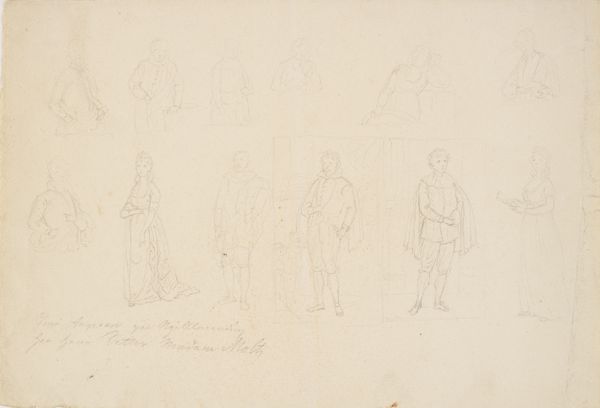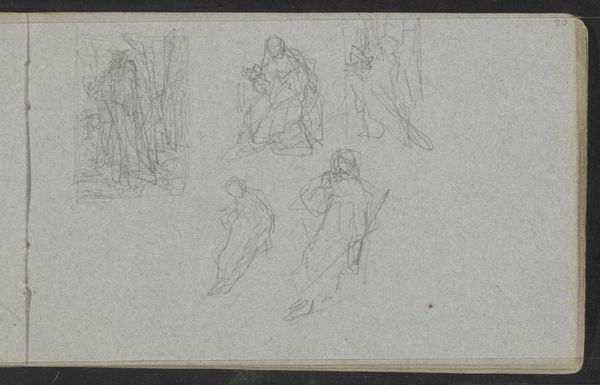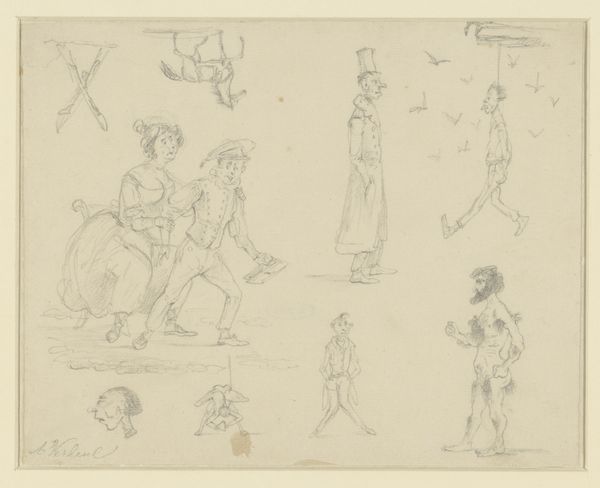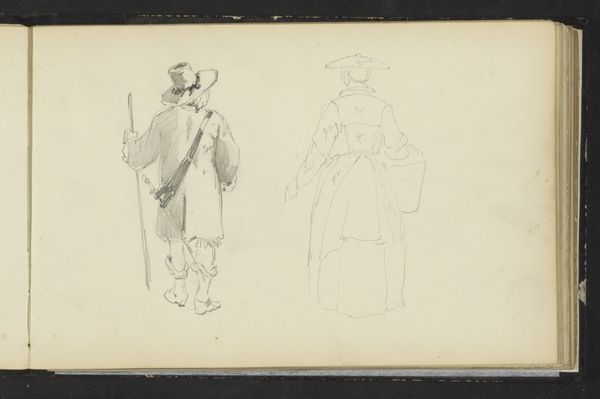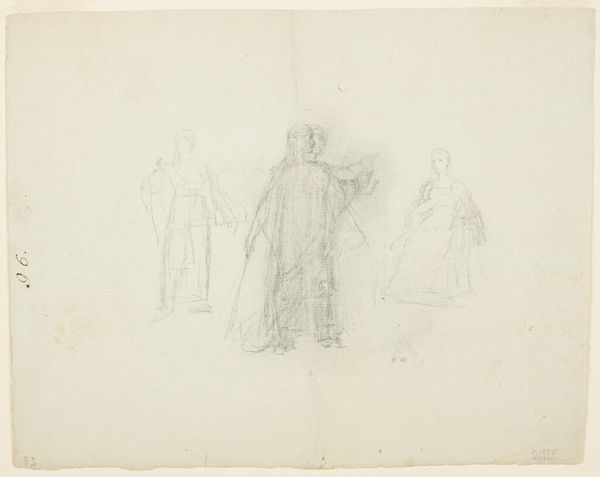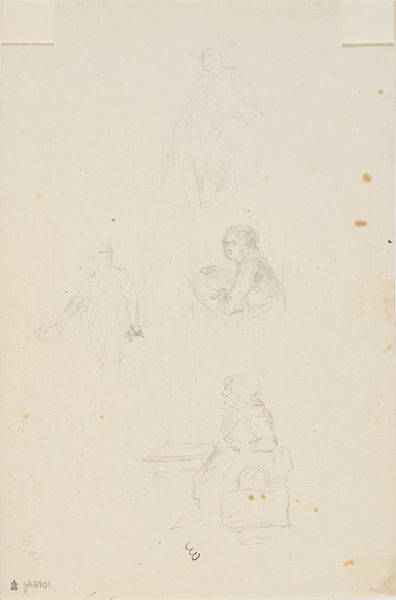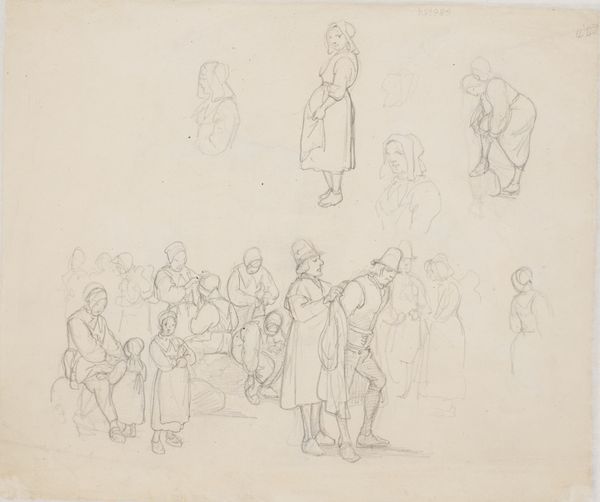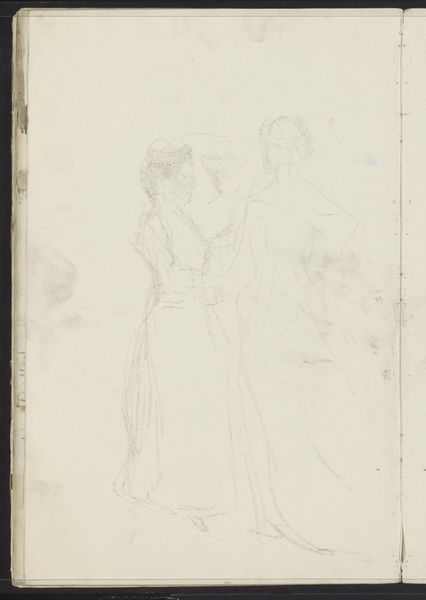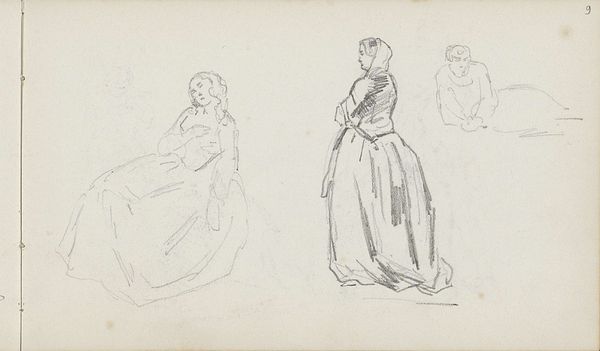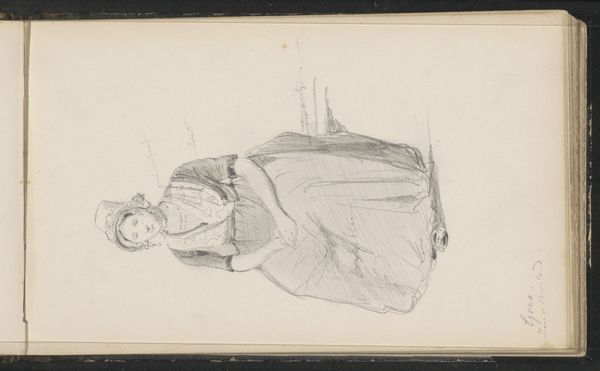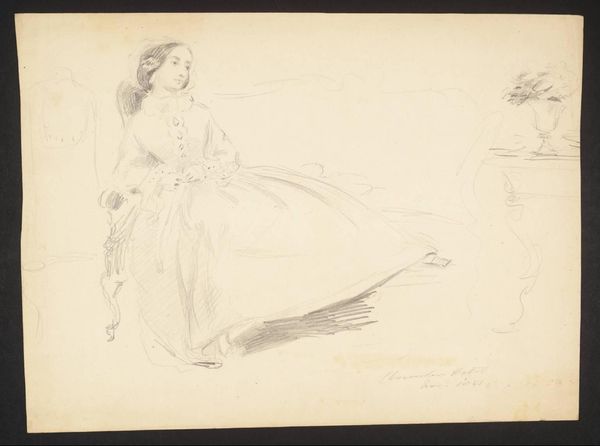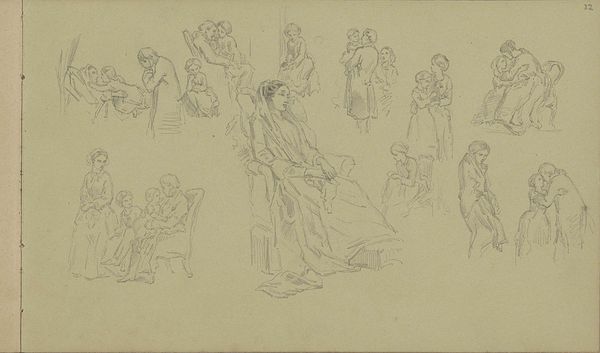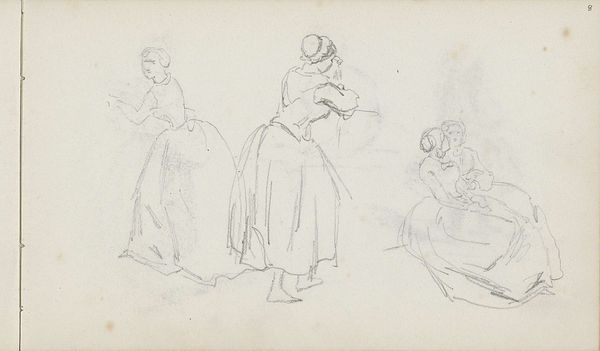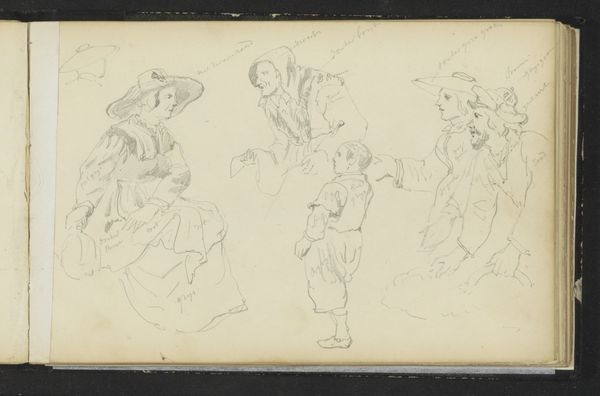
drawing, paper, pencil
#
portrait
#
drawing
#
aged paper
#
toned paper
#
light pencil work
#
quirky sketch
#
sketch book
#
incomplete sketchy
#
figuration
#
paper
#
personal sketchbook
#
pen-ink sketch
#
pencil
#
sketchbook drawing
#
genre-painting
#
sketchbook art
Copyright: Rijks Museum: Open Domain
Curator: Here we have a peek into the past with Cornelis Springer's "Vrouwen in Zeeuwse kostuums," a pencil drawing dating back to the period of 1856 to 1861. Editor: Wow, it’s so understated. I find it intensely personal. The women almost float on the toned paper; ghostly impressions from another time. I am getting strong Anne Brontë vibes. Curator: Indeed. These Zeeland costumes, though depicted in a preliminary sketch, offer insight into the attire of women from that coastal province. Think about the restrictions imposed on women at that time. These costumes visually reinforced social order and regional identity, influencing perceptions and behavior within that framework. Editor: Right. And this feels like such a private glimpse of something very public. Like, maybe these are quick studies he jotted down in his sketchbook between grand architectural renderings? He’s almost daydreaming them. Did Springer do a lot of portraits, generally? Curator: He primarily focused on architectural paintings and cityscapes. However, in sketches like these, he turned to the human form to complement his architectural subjects. He seemed keen on the lives lived within them. Notice the incomplete, sketchy quality, perhaps it alludes to themes of impermanence? Editor: Well, he definitely caught the somber mood. And I wonder about the choices and constraints behind the costumes? Like, did it reflect the individual lives of the women or mostly express the status and constraints imposed on their identity and social position? What were these women thinking and dreaming beyond the constraints of those layers and layers of cloth? Curator: That's precisely it! This piece invites us to contemplate not only the aesthetics of 19th-century Zeeland but the complexities of women's lived experience in a deeply structured society. We should think about how external codes define, restrain and enable freedom and expression. Editor: It feels like it's whispering secrets about forgotten lives, and untold stories—making you wanna grab a pencil and respond, sketch out your own imagining, ya know? It is pretty cool. Curator: Precisely; perhaps that is its enduring power.
Comments
No comments
Be the first to comment and join the conversation on the ultimate creative platform.
